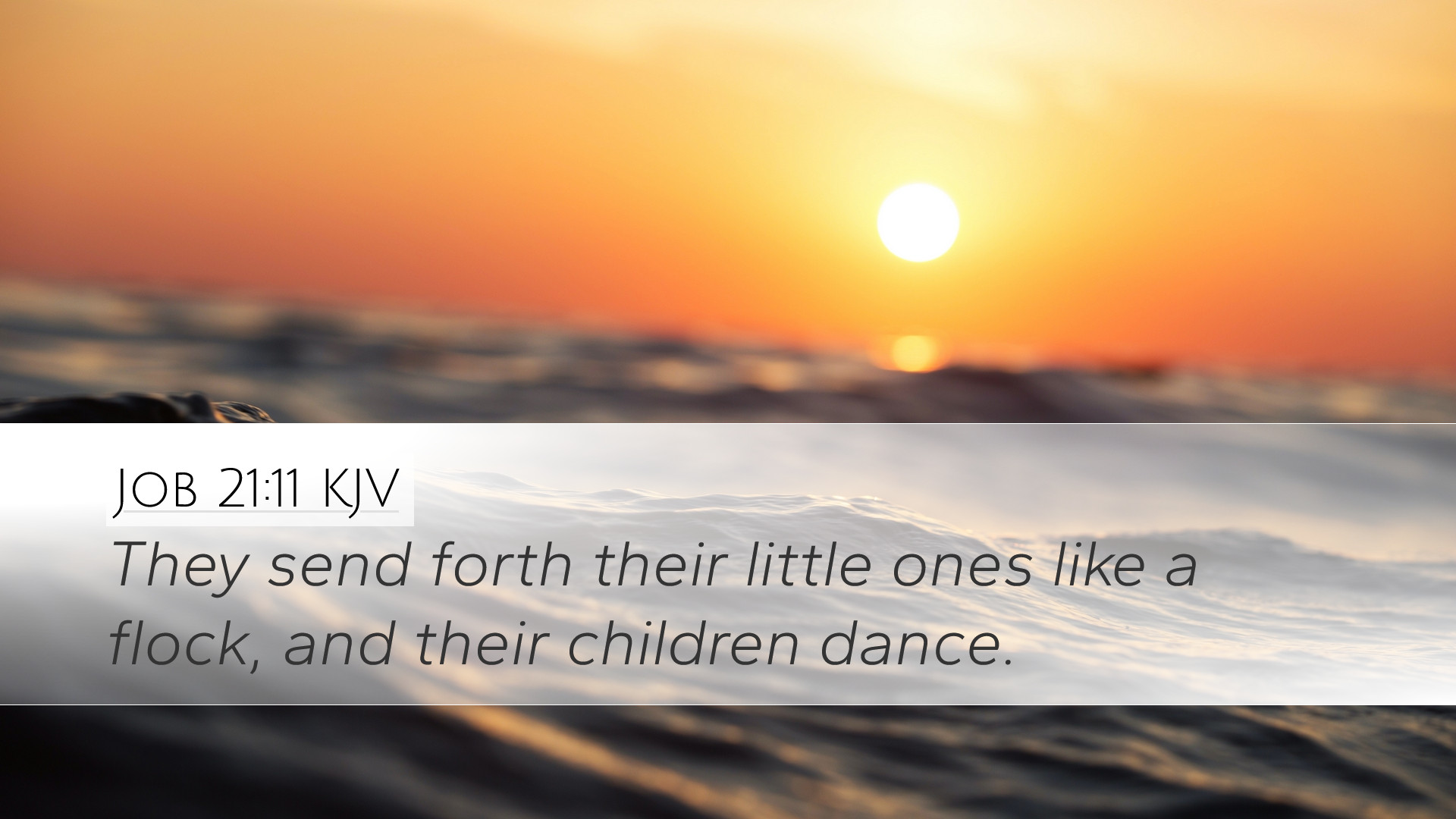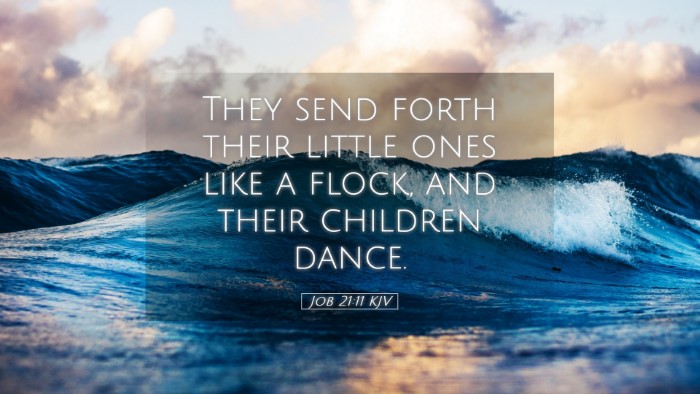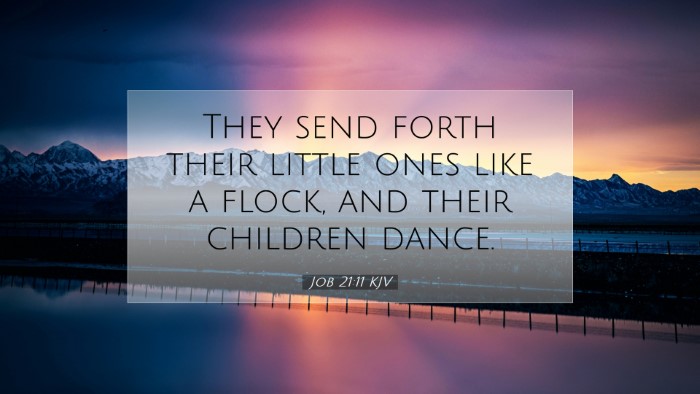Commentary on Job 21:11
Verse: "They send forth their little ones like a flock, and their children dance." (Job 21:11)
Introduction
The verse under consideration is part of Job's response to his friends who have accused him of wrongdoing. He seeks to illustrate the apparent prosperity of the wicked, using poignant imagery. Job challenges the idea that suffering is always a direct consequence of sin, a theme central to the book's discourse.
Contextual Background
The broader context of Job 21 is essential to comprehend the argument Job puts forth. His friends have presented a rigid theological framework—arguing that the wicked always face inevitable destruction. Job counters this by pointing out that many who live with impunity lead lives filled with prosperity.
Exegetical Insights
This verse presents striking imagery of children of the wicked living carefree lives. The phrase "send forth their little ones like a flock" conveys a sense of innocence and safety, suggesting that despite the moral failures of their parents, these children experience joy and freedom.
- Matthew Henry: Henry emphasizes the stark contrast between the innocent lives of the ungodly's children and the suffering experienced by Job's own family. This observation suggests a profound injustice in how life unfolds, as misfortune has befallen the righteous while the wicked seem untouched.
- Albert Barnes: Barnes notes that the imagery of children dancing is synonymous with happiness and carefreeness. He interprets this as Job's method of emphasizing the absurdity of his friends' argument that suffering is directly correlated to sin. The contentment of the wicked's children provides evidence that their parents do not face immediate divine retribution.
- Adam Clarke: Clarke articulates the implications of this verse in terms of societal perception. He posits that Job is demonstrating how outward appearances can mislead. The joyous demeanor of these children reflects a transient state that doesn’t bear the weight of their parents' moral transgressions, thus calling attention to the complexities of divine justice.
Theological Implications
The verse poses significant theological questions regarding divine justice and the nature of suffering. It challenges the simplistic equation of suffering with divine punishment. Here, the joviality of the wicked's children could indicate a broader theological principle—that God's justice is often not immediately apparent in earthly experiences.
Challenges to Traditional Views
- The Prosperity of the Wicked: This verse affirms the reality that often, the wicked live prosperous lives, a theme that resonates with scholars and theologians who study theodicy—the vindication of divine goodness in the face of evil.
- Children as Innocents: The reference to children highlights the innocence of the next generation, raising the question of how inherited sin and individual accountability intersect in the theological discourse.
Contemporary Applications
Pastors and leaders in ministry can draw from this passage to address congregational concerns regarding suffering and justice. In counseling situations, this may evoke discussions about the apparent injustices of life and the complexity of God's workings in the world. Reiterating that prosperity in wealth doesn't equate to divine favor can prompt deeper reflections on one's relationship with God.
Conclusion
Job 21:11 serves as a critical reminder of the complexity of life and divine justice. The picturesque dance of children amidst their wicked parents' lives illustrates a divine mystery that extends beyond human understanding. The insights from classical commentaries unveil layers of meaning that have vital implications for believers navigating the challenging questions of justice, suffering, and the character of God.


